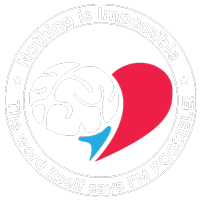What is hypnosis?
Hypnosis is a natural state of the mind in between the awake state and sleep. It is a state of mind relaxation similar to that moment when you drift off to sleep.
What does it feels like to be hypnotised?
Because of its past and its nature hypnosis is still surrounded by an aura of mystery but, to put it simply, hypnosis is only a state of mind relaxation similar to meditation which instead is nowadays widely recognised and well reputable. The main difference between the two disciplines is that, whereas the objective of meditation is to clear your mind through silence and deep breathing, in hypnosis you will be guided to imagining situations which will look very real in your mind just like when you are completely absorbed day-dreaming or absorbed in a book and feels as if you are right there in the scene.
Once you come out of trance you feel relaxed and most probably very surprised at how enjoyable the experience was.
Will I be aware of what’s going on while in trance?
Most of the times you are, unless you reach a really deep trance, which is usually not required for therapy as you need to be able to converse with your therapist.
Can I be made do or say what I don’t want to?
This is a big myth that is part of the surrounding aura of mystery that has dressed up hypnosis for so many years. This image in people’s mind was created by stage hypnotists, however hypnotherapy is very different form that and to make a story short you cannot be made do something against your will and that you do not consider ethical. In fact hypnosis makes it easy for change to happen but some conscious effort, to practice the tools taught, is always required.
Also you do retain your full capacity in hypnosis and you would also be able to lie if you wanted to, however as the therapist is expected to conduct him/herself in an ethical manner and give you suggestions exclusively for your own benefit there should be no reason why you would not want to follow his/her instructions if you really are committed to change.
Is there a chance that I might be stuck in trance?
There is no such a thing, as even in the rare possibility of a client not coming back to full awareness when asked, the therapist will say the words again until the client if fully aware. The reason why some client might need prompting more than once is that they are enjoying that lovely state of relaxation. A client might nod off during trance, but again there is no risk of remaining in a trance forever.
Are there any contraindications and risks with hypnosis?
So far there have been no insurance claims recorded against a hypnotherapist and it is only contraindicated for use with people with certain conditions, like mentally disabled or with personality disorders of a certain degree.
Is hypnotherapy for me?
Hypnotherapy is suitable for you if you have already made a choice of wanting to change and you are willing to do anything it takes for that change to happen so you can be free of your issue once and for all.
This means that you are committed to therapy no matter what. If you are not at that stage yet, please consider taking some time out to think about what is it, that you really want.
This is because if you are not 100% convinced you want that change to happen, you might discontinue therapy before the due time and in so doing you will not get as much benefit out of it as you could, ending up feeling you have wasted your resources, when in fact there was a lack of commitment to change from the beginning, so it is really important that you are at a crossroad in your life.
Remember, the power to change is in your hands, my role is to help you along, and I will do that in every way I can!
Is hypnosis safe for children?
It is. In fact the best subjects for hypnosis are children between the age 7-12. However for younger children there are specific psychotherapy techniques which can be performed without inducing hypnosis and which are very effective nonetheless.

